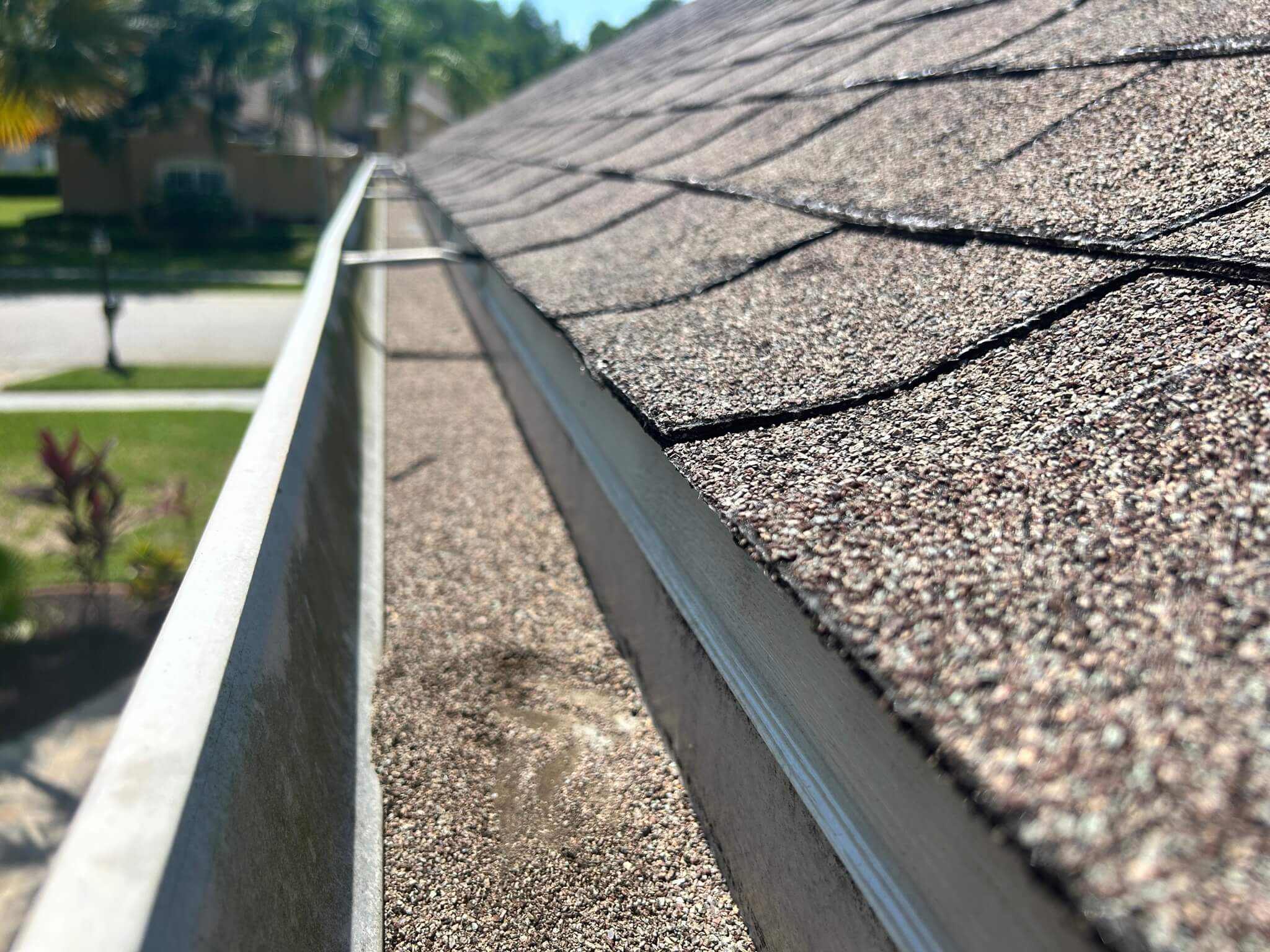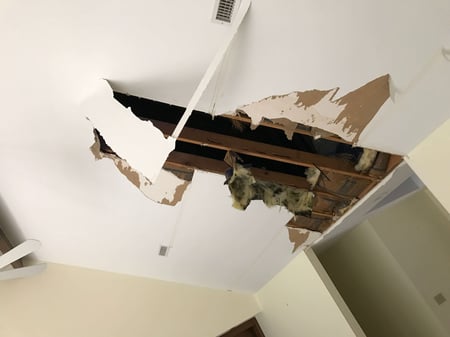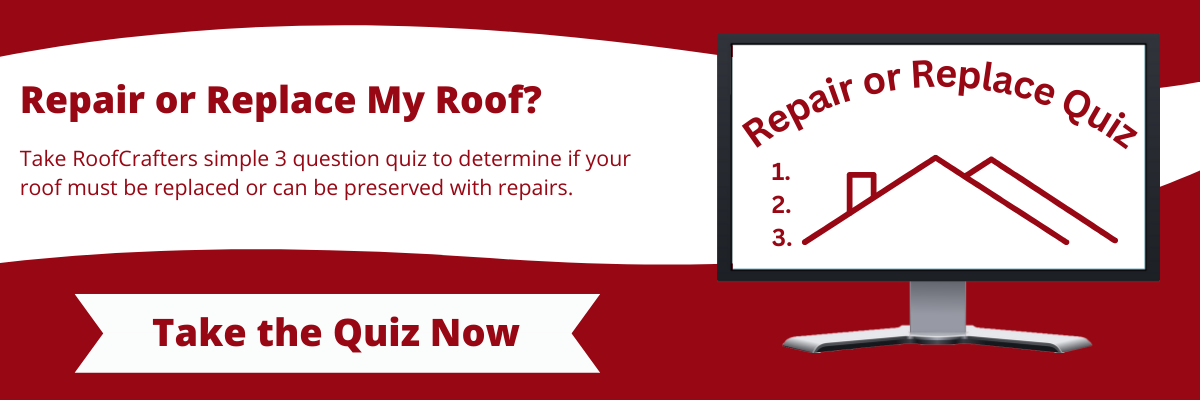Do I Really Need to Replace My Roof?
July , 2025 | 7 min. read

Let’s face it: a roof replacement isn’t exactly something most people look forward to. It’s a big investment, and it can feel overwhelming. So, if you’re looking up “Do I really need to replace my roof?”, you’re definitely not alone.
At RoofCrafters, we know that many homeowners find themselves wondering if they can squeeze just a few more years out of their current roof, or if it’s time to bite the bullet and schedule a full roof replacement.
While routine roof repairs can solve some issues, there are signs that indicate you may need more than just a patch job. So, allow us to walk you through the top 7 signs that it might be time for a new roof, what can happen if you delay, and how to make a smart choice for your home.
1. Your Roof Is Over 20 Years Old

Most asphalt shingle roofs are designed to last between 20 to 25 years, depending on the materials used and the quality of the installation. If your roof is creeping past the 20-year mark, it’s time to pay close attention.
Even if it looks okay from the ground, the structural integrity could be compromised. Over time, shingles lose their granules, flashing wears down, and water can start finding sneaky ways in.
2. You’re Noticing Curling or Missing Shingles
Take a look at your roof (binoculars help if you’re not climbing up there yourself). Do you see shingles that are curling at the edges or buckling in the middle? That’s a red flag.
Missing shingles are another concern. They leave the underlayment exposed, making it easy for water to seep in and cause leaks or rot.
These issues can sometimes be fixed with minor roof repairs, but if they’re widespread, it might be more cost-effective to replace the entire roof.
3. You Have Roof Leaks or Water Stains Inside

If you’re dealing with ceiling stains, bubbling paint, or mysterious water drips, your roof is likely the culprit. A leaking roof doesn’t just damage the exterior; it can also lead to interior problems like mold, mildew, and even structural damage to ceilings and walls.
By the time leaks make themselves known indoors, there may already be significant damage in the attic or insulation.
Pro tip: Don’t wait. A small leak can quickly turn into a major problem.
4. Your Roof Has Sagging Areas
A sagging roof is never a good sign. This usually means there’s trapped moisture weakening the underlying decking or structural supports. Left untreated, it can lead to collapse—yes, collapse.
Sagging can occur over time, especially in areas where water pools or snow accumulates. It’s more than an eyesore; it’s a serious safety issue.
5. Granules in Your Gutters

If your gutters are full of what looks like coarse black sand, those are probably shingle granules. They protect your shingles from UV rays and weather damage.
As shingles age, they start shedding granules more rapidly, leaving them vulnerable to sun damage and cracking. If you’re noticing excessive granule loss, it’s a key indicator your roof is nearing the end of its life.
6. You’ve Had Multiple Roof Repairs Recently
Sometimes, constantly fixing your roof costs more in the long run than just replacing it altogether. If you’re calling your roofer every time it rains, it might be time to take a step back and look at the bigger picture. Frequent roof repairs usually point to deeper structural issues or general roof deterioration.
7. Your Energy Bills Are Climbing
A failing roof doesn’t just let in water; it can also let out your home’s heating and cooling. Poor insulation and ventilation caused by roof damage can lead to higher utility bills. If your HVAC system is working overtime and your energy costs are going up, your roof might be to blame.
What Happens If You Delay a Roof Replacement?
Postponing a roof replacement can lead to:
- Structural damage
- Interior water damage
- Mold and mildew growth
- Higher repair costs down the road
- Reduced property value
Plus, insurance companies are less likely to cover damage if they determine the roof should have been replaced sooner. It’s better to be proactive than reactive, especially when it comes to protecting your home.
Roof Replacement vs Roof Repair: How to Decide
Here’s a quick breakdown to help you decide whether a repair or full replacement makes more sense:
|
Situation |
Best Option |
|
Minor, isolated damage |
Roof repair |
|
Roof is under 10 years old |
Roof Repair |
|
Extensive damage or leaks |
Roof replacement |
|
Roof is 20+ years old |
Roof replacement |
|
High frequency of repairs |
Roof replacement |
Still unsure? A professional roofing inspection can help you weigh your options. Many reputable roofing contractors offer free inspections and estimates.
What Is the Average Cost to Replace a Roof?
The cost to replace a roof can vary widely based on your location, roofing material, roof size, and labor costs. On average:
- Asphalt shingles: $5,000 – $12,000
- Metal roofing: $10,000 – $20,000
- Tile or slate roofs: $15,000 – $30,000+
While it’s a significant investment, a new roof also adds value to your home and improves curb appeal.
So, Do You Really Need to Replace Your Roof?
If your roof is old, leaking, sagging, or shedding granules like crazy, it might be time to stop repairing and start replacing. A strong, well-installed roof protects your home, saves you money on energy bills, and brings peace of mind, especially during storm season.
If you’ve spotted a few of these signs, don’t wait until a roofing emergency forces your hand. Reach out to a licensed roofing contractor in your area for a professional evaluation and estimate.
Want help figuring out whether you need a repair or a full roof replacement? Be sure to hit that “Schedule an Inspection” button down below. We’re here to guide you every step of the way!
At RoofCrafters, our mission is to provide job opportunities for others to thrive and grow while making a meaningful impact within our communities.




